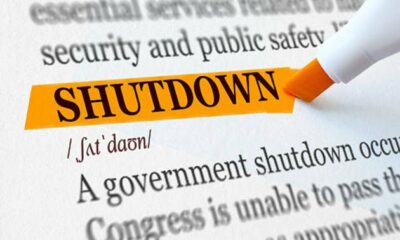World
UN Court to Rule on Israel’s Duty to Facilitate Aid for Palestinians

The International Court of Justice (ICJ) is scheduled to deliver an advisory opinion on October 11, 2023, regarding Israel’s legal obligations to ensure the delivery of humanitarian aid to Palestinians in Gaza and the occupied West Bank. This opinion comes at a critical time as the region grapples with severe humanitarian needs exacerbated by ongoing conflict and restrictions on aid.
The U.N. General Assembly requested the ICJ’s guidance last year after Israel imposed significant limitations on the United Nations Relief and Works Agency (UNRWA), the primary organization providing aid to Palestinian refugees. The court’s advisory opinions hold considerable legal weight, and experts suggest this ruling could impact U.N. operations globally.
The proceedings are taking place against the backdrop of a fragile ceasefire agreement brokered by the United States, which commenced on October 10, 2023, in an effort to halt a two-year conflict in Gaza. Despite the truce, hostilities were reignited earlier this week, as Israeli forces conducted strikes in response to the killing of two soldiers by Hamas militants. Under the ceasefire terms, 600 humanitarian aid trucks are permitted to enter Gaza daily, and the U.N. has announced plans to increase aid shipments to the area.
During the hearings in April, Ammar Hijazi, the Palestinian Ambassador to the Netherlands, criticized Israel for its actions, stating that the country was “starving, killing and displacing Palestinians while also targeting and blocking humanitarian organizations.” Conversely, Israel has denied any violations of international law, claiming the court proceedings are biased, and opted not to participate in the hearings. Instead, Israel submitted a 38-page written document for the court’s consideration.
Israel’s ban on UNRWA operations in Gaza, effective since January, has drawn criticism, particularly from Prime Minister Benjamin Netanyahu and his far-right coalition partners, who assert that the organization is compromised by Hamas influence. UNRWA has rejected these accusations. Furthermore, Israel suspended all aid shipments in March for a three-month period, causing significant food shortages. Although some aid was later allowed, Israel has faced allegations of using aid distribution as a means of exerting control, prompting international food experts to declare a famine in parts of Gaza as of August.
The ICJ’s advisory opinion will not impose direct penalties; however, it is intended to clarify the protections that countries owe to U.N. personnel, as stipulated in the relevant treaties. The General Assembly’s request addressed Israel’s obligations to ensure the “unhindered provision of urgently needed supplies essential to the survival of the Palestinian civilian population.” According to Mike Becker, an expert on international human rights law at Trinity College Dublin, this advisory opinion presents a vital opportunity to reinforce U.N. operations globally.
Historically, the ICJ has issued significant advisory opinions concerning Israeli policies. In 2004, the court ruled against the legality of Israel’s West Bank separation barrier. More recently, in a ruling last year, the court deemed Israel’s presence in the occupied territories unlawful and called for an immediate halt to settlement construction. These past decisions have spurred movements toward recognizing Palestinian statehood unilaterally.
In addition to the advisory opinion, a separate case is underway at the International Criminal Court (ICC), where arrest warrants have been issued for Netanyahu and former Defense Minister Yoav Gallant, citing allegations of using starvation as a method of warfare. Both officials have denied these charges.
The conflict in Gaza escalated after Hamas launched a surprise attack on Israel, resulting in the deaths of 1,200 people and the abduction of 250 hostages. Israel’s subsequent military response has led to the deaths of over 68,000 individuals, based on figures from Gaza’s Health Ministry, which are considered credible by U.N. agencies. Israel disputes these casualty figures but has not provided an alternative count.
As the ICJ prepares to issue its opinion, the potential implications for international humanitarian law and the broader U.N. framework remain significant, particularly concerning the ongoing humanitarian crisis in Gaza and the West Bank.
-

 World3 months ago
World3 months agoScientists Unearth Ancient Antarctic Ice to Unlock Climate Secrets
-

 Entertainment3 months ago
Entertainment3 months agoTrump and McCormick to Announce $70 Billion Energy Investments
-

 Lifestyle3 months ago
Lifestyle3 months agoTransLink Launches Food Truck Program to Boost Revenue in Vancouver
-

 Science3 months ago
Science3 months agoFour Astronauts Return to Earth After International Space Station Mission
-

 Technology2 months ago
Technology2 months agoApple Notes Enhances Functionality with Markdown Support in macOS 26
-

 Top Stories1 week ago
Top Stories1 week agoUrgent Update: Fatal Crash on Highway 99 Claims Life of Pitt Meadows Man
-

 Sports3 months ago
Sports3 months agoSearch Underway for Missing Hunter Amid Hokkaido Bear Emergency
-

 Politics3 months ago
Politics3 months agoUkrainian Tennis Star Elina Svitolina Faces Death Threats Online
-

 Technology3 months ago
Technology3 months agoFrosthaven Launches Early Access on July 31, 2025
-

 Politics3 months ago
Politics3 months agoCarney Engages First Nations Leaders at Development Law Summit
-

 Entertainment3 months ago
Entertainment3 months agoCalgary Theatre Troupe Revives Magic at Winnipeg Fringe Festival
-

 Politics2 weeks ago
Politics2 weeks agoShutdown Reflects Democratic Struggles Amid Economic Concerns





















